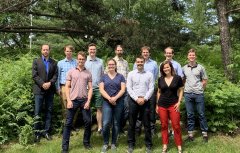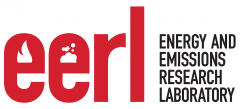
The NSERC FlareNet Network is accepting applications for a Post-Doctoral Research Fellow to contribute to large-scale wind tunnel experiments to quantify carbon conversion efficiencies and pollutant emissions from gas flares found that are common in the global oil and gas industry. This research is a central part of the NSERC FlareNet strategic network (www.flarenet.ca), led out of Carleton University in collaboration with the University of Western Ontario, University of Alberta, University of British Columbia, and University of Waterloo. This position will be based at Western University in London, ON but the successful applicant will also work very closely with the team at the Energy & Emissions Research Lab at Carleton University
Research Focus: The postdoctoral researcher will play an essential role in meeting the objectives of FlareNet’s Theme 3 on effects of turbulent crosswinds on flare emissions. Under this theme, FlareNet is conducting the world’s first systematic experiments to specifically quantify the impacts of wind turbulence scale and intensity on emissions from flares, including those associated with unconventional oil and gas recovery, as well as air- and steam-assisted flares. Through the development of quantitative understanding and predictive models for gas and particulate phase emissions that include the effects of a turbulent crosswind, this work will be a central contribution of the NSERC network.
- The position is open January. 6st, 2019 with funding secured for 18 months appointment June 30th 2021: Click here for further details
EERL is looking to hire two new Post Doctoral Research Fellows
- Post Doctoral Research Fellow in Laser Based Sensor Design
- Post Doctoral Research Fellow in Unmanned Aerial Systems Design
About EERL
Our lab conducts interdisciplinary research within the general areas of fluid mechanics, combustion, thermodynamics, and laser diagnostics with applications focused on pollution quantification and mitigation in the upstream energy industry. We collaborate closely with National Research Council and Natural Resources Canada and draw research support from several diverse sources including the World Bank Global Gas Flaring Reduction Partnership (GGFR), Natural Resources Canada, Natural Sciences and Engineering Research Council (NSERC), Environment Canada, Petroleum Technology Alliance of Canada (PTAC), and United Nations Climate and Clean Air Coalition (CCAC).

